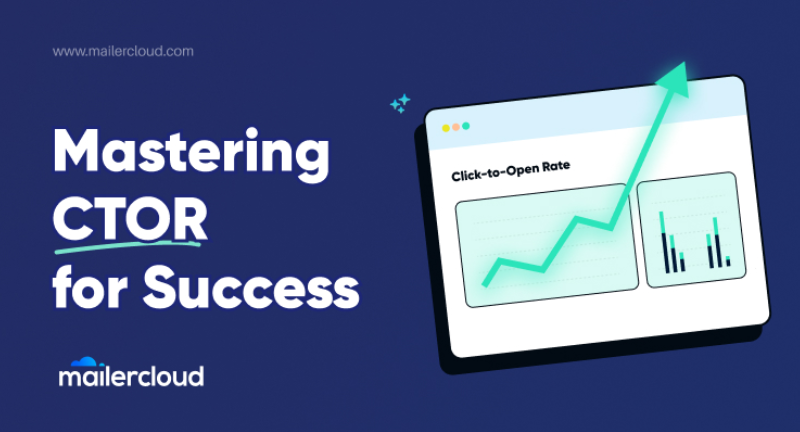Hubspot focuses on marketing, sales, and service tools, while ClickUp excels in task management and team collaboration. Both platforms cater to different business needs.
Hubspot and ClickUp are popular tools that streamline business processes. Hubspot is designed for businesses looking to enhance their marketing, sales, and service operations. It offers CRM, email marketing, and customer service features. ClickUp, on the other hand, is a versatile project management tool.
It helps teams organize tasks, manage projects, and collaborate efficiently. Businesses benefit from its customizable workflows, time tracking, and goal-setting features. Understanding their core features can help you choose the right tool for your business needs. This comparison will highlight the key differences and similarities to guide your decision.
Introduction To Hubspot And Clickup
HubSpot started in 2006. Founders are Brian Halligan and Dharmesh Shah. Their goal was to help businesses grow. ClickUp launched in 2017. Zeb Evans founded it. Their aim was to create a better project management tool.
HubSpot focuses on inbound marketing. It helps businesses attract and keep customers. ClickUp focuses on productivity. It aims to bring all your work into one place.

Credit: productive.io
User Interface And Experience
Hubspot’s user interface offers intuitive navigation and seamless integration, enhancing user experience. Clickup provides customizable features and a sleek design for efficient task management.
Ease Of Use
Hubspot and Clickup have simple interfaces. Hubspot has a clean and intuitive design. Clickup offers more customization but can be complex. Both tools help users get started quickly. Hubspot’s layout is easy to understand. Clickup may take some time to master.
Customization Options
Clickup provides a wide range of customization options. Users can change views, add custom fields, and create unique workflows. Hubspot offers fewer customization choices. Hubspot focuses on simplicity and ease of use. Clickup’s flexibility is great for advanced users. Hubspot is best for beginners.
Project Management Capabilities
Explore the project management capabilities of Hubspot and Clickup. Compare features like task management, collaboration tools, and integration options. Discover which platform suits your needs best.
Task Management
HubSpot offers basic task management features. Users can create, assign, and track tasks. Task prioritization and due dates help stay organized. ClickUp provides advanced task management options. Users can create custom task statuses and task templates. Both tools support task dependencies and recurring tasks.
Time Tracking
HubSpot lacks built-in time tracking features. Users need third-party integrations for this. ClickUp includes time tracking within the platform. Users can log time spent on tasks directly. Time estimates and reports are also available. This helps manage project timelines effectively.
Crm Features
HubSpot offers robust marketing automation, while ClickUp excels in task management and collaboration. HubSpot’s CRM integrates seamlessly with sales tools, whereas ClickUp provides customizable workflow options.
Contact Management
Hubspot offers easy contact management with rich profiles. Users can store contact details, track interactions, and even segment contacts based on various criteria. Clickup provides flexible contact management through custom fields. It lacks some advanced segmentation features found in Hubspot. Both platforms let you import and export contacts easily.
Lead Tracking
Hubspot excels in lead tracking with real-time updates and automated lead scoring. It integrates with email to track lead interactions and helps in nurturing leads effectively. Clickup also offers lead tracking but relies heavily on manual input and custom automations. It allows for task assignments to manage leads but may not be as comprehensive as Hubspot’s automated features.
Collaboration Tools
Hubspot offers chat and email features. Teams can use these to stay connected. Clickup provides chat, email, and video calls. The video call feature helps in remote work. Both tools support real-time communication. This ensures that everyone stays updated.
Hubspot allows users to share files within emails and chats. It also integrates with Google Drive. This helps in accessing documents easily. Clickup supports file sharing in tasks and comments. It also integrates with Dropbox and Google Drive. This makes it easier for teams to share and find files.
Integrations And Compatibility
HubSpot offers seamless integration with various marketing tools, while ClickUp excels in compatibility with project management apps. Both platforms ensure efficient workflows through extensive third-party integrations.
Third-party Apps
Hubspot integrates with over 300 third-party apps. This includes popular tools like Gmail, Outlook, and Slack. Users can automate tasks and streamline workflows. Clickup, on the other hand, offers more than 1,000 integrations. These include apps like Zoom, Google Drive, and Trello. Both platforms ensure smooth integration with essential tools.
Platform Compatibility
Hubspot supports both desktop and mobile platforms. It works on Windows, Mac, iOS, and Android. Clickup also supports these platforms. Users can access their work from anywhere. Both tools offer seamless experience across devices. Hubspot provides a web-based interface, while Clickup offers a desktop app. Both platforms ensure compatibility with various operating systems.
Pricing And Plans
Compare the pricing and plans of Hubspot and Clickup to find the best fit for your budget. Discover which platform offers the most value for your needs. Evaluate the cost-effectiveness of both tools in detail.
Subscription Options
Hubspot offers four main subscription plans: Free, Starter, Professional, and Enterprise. Clickup provides five plans: Free, Unlimited, Business, Business Plus, and Enterprise. Both platforms cater to different business sizes and needs. Small businesses might prefer the free and starter plans. Larger organizations may benefit more from the advanced options.
Free Vs. Paid Features
Hubspot’s free plan includes basic CRM tools, email marketing, and ad management. Paid plans unlock more advanced features like custom reporting and automation. Clickup’s free plan offers task management, unlimited users, and time tracking. Paid plans add features like goals, portfolios, and advanced integrations. Both tools provide essential features in their free versions, but paid plans offer more robust functionalities.

Credit: www.webstacks.com
Customer Support And Resources
Explore the strengths of customer support and resources in HubSpot and ClickUp. Compare their live chat, knowledge bases, and community forums to see which platform best meets your needs.
Support Channels
Hubspot offers email, live chat, and phone support. Users can get help fast. Hubspot’s community forum is also very active. It helps users solve problems.
Clickup provides email and chat support. No phone support is available. Clickup’s community forum is helpful too. Users can find many answers there. Both platforms offer helpful support channels. Yet, Hubspot has more options for users.
Learning Materials
Hubspot has many learning materials. It offers online courses, webinars, and tutorials. Users can learn at their own pace. Hubspot Academy is free and very detailed. It helps users become experts.
Clickup also has good learning materials. It offers webinars, guides, and video tutorials. Users can find answers quickly. Clickup University has many useful courses. Both platforms provide valuable resources for learning. Yet, Hubspot offers more in-depth courses.
Pros And Cons Of Hubspot And Clickup
Hubspot offers robust marketing tools and CRM integration, while ClickUp excels in task management and team collaboration features. Hubspot’s pricing can be steep for small businesses, whereas ClickUp provides a more budget-friendly option. Both platforms cater to different needs, making them suitable for various business requirements.
Strengths
Hubspot offers excellent marketing automation tools. It integrates well with many other platforms. Users love its CRM features. It has a user-friendly interface. Clickup excels at task management. It provides many customization options. Teams can use it for project tracking. It supports multiple views like lists, boards, and calendars.
Weaknesses
Hubspot can be expensive for small businesses. Some users find its learning curve steep. Customization options are somewhat limited. Clickup may feel overwhelming for new users. It has many features, which can be confusing. Some users report slow performance with large projects.
Conclusion And Recommendation
HubSpot excels in marketing automation and CRM, making it ideal for sales-focused teams. ClickUp offers superior project management features, perfect for task-oriented workflows.
Best Use Cases
HubSpot is best for marketing and sales teams. It helps in managing customer relationships. ClickUp is great for project management. Teams can track tasks and deadlines easily. Each tool has unique strengths. Choose based on your needs.
Final Verdict
Both tools are powerful. HubSpot excels in CRM and marketing. ClickUp shines in project management. Analyze your team’s requirements. Select the tool that fits best. Both are excellent choices.

Credit: productive.io
Frequently Asked Questions
What Are The Key Features Of Hubspot?
HubSpot offers CRM, marketing automation, email marketing, and customer service tools. It also includes sales pipeline management, lead tracking, and analytics.
How Does Clickup Improve Productivity?
ClickUp enhances productivity with task management, time tracking, and collaboration tools. It also features goal setting and project templates.
Is Hubspot Suitable For Small Businesses?
Yes, HubSpot is ideal for small businesses. It provides scalable marketing, sales, and service tools that grow with your business.
Can Clickup Integrate With Other Software?
Yes, ClickUp integrates with numerous tools like Slack, Google Drive, and Trello. This ensures seamless workflow and better productivity.
Conclusion
Choosing between HubSpot and ClickUp depends on your business needs. HubSpot excels in marketing automation and CRM. ClickUp stands out for project management and team collaboration. Evaluate your specific requirements to decide the best fit. Both platforms offer robust features to enhance productivity and efficiency.


